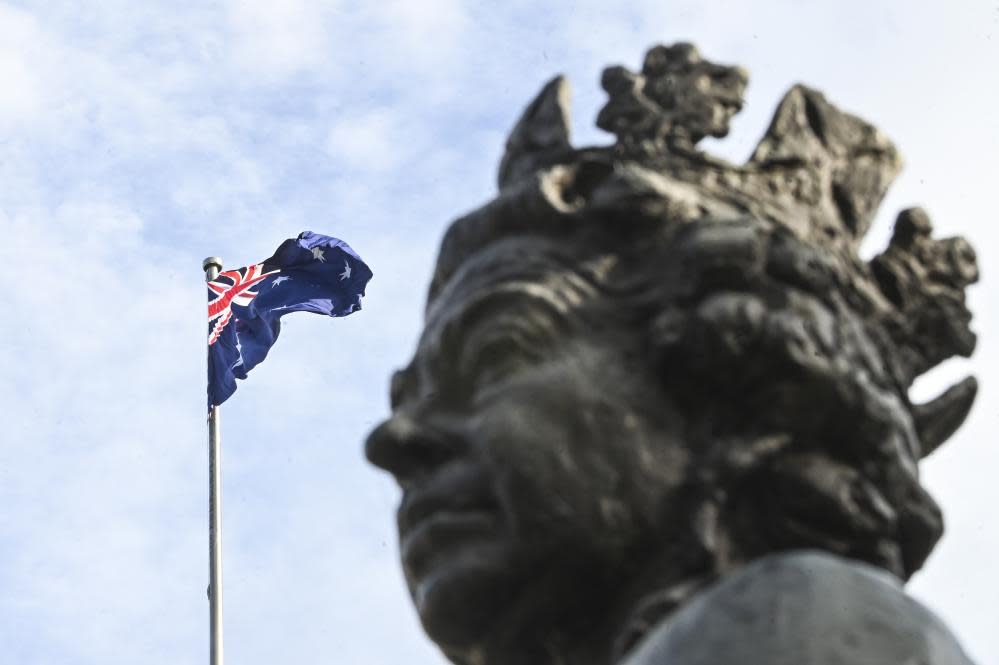The palace letters amount to an act of interference in Australian democracy

In the curious way things sometimes play out in the breaking news cycle, much of the instant coverage after the release of the palace letters – the gripping trove of correspondence between the Queen, her representatives and governor general John Kerr in the run-up to the dismissal of Gough Whitlam – focused on Kerr not giving the Queens a heads-up before moving against the prime minister.
That’s certainly a fact. In one of the letters, the Queen’s private secretary Sir Martin Charteris thanks Kerr for being a good chap by keeping the monarch out of the muck. “If I may say so with the greatest respect, I believe that in NOT informing The Queen what you intended to do before doing it, you acted not only with perfect constitutional propriety but also with admirable consideration for Her Majesty’s position,” he says.
But amplifying this particular insight misses the larger truth of what this profoundly important cache of correspondence lays bare.
It’s a statement of the obvious to acknowledge two things: 1975 was a different time, another era, another country even; and the capacity for Britain to influence the affairs of Australia is a yoke this country has willingly accepted, and will go on accepting until we have the imagination and the gumption to insist that our head of state be one of our own rather than a monarch in another hemisphere.
But it is incredible to read, with the hindsight of 40-plus years, with Australia having made the transition from forelock-tugging colonial outpost to respectable middle power, these minute deliberations, back and forth, between Yarralumla and the palace (an institution supposed to float airily above politics) about what should be done to resolve a political deadlock in another hemisphere created by a couple of bullheaded, egomaniacal politicians – Whitlam and Malcolm Fraser.
It is truly bizarre, in an era of great power competition, when countries are correctly worried about incursions on their sovereignty, to be reading a collection of letters laying out what reads in a contemporary times like an act of interference in Australian democracy. It is extraordinary that a tiny unelected outpost of Britain in Australia should be deciding the fate of a democratically elected prime minister in between comparing notes about the desirability of unofficial trips to Paris and Norfolk.
But that’s the story of the letters.
These letters make it very clear that Kerr kept the palace very much in the loop about his thinking. Australia’s governor general was clearly a nervous, exhaustive, effusive, backside-covering correspondent. It doesn’t matter whether he gave the Queen an explicit five-second warning that he was about to Base jump and sack a prime minister. Kerr was transparent in his deliberations over a long period of time, and was given comfort at various times by Charteris.
I felt righteous anger reading this. I felt the affront to my democracy
Charteris obviously counselled all the proper things. Quoting Kerr to himself, the Queen’s man said the crisis had to be “worked out in Australia”. The Queen had no wish to intervene. He noted that Fraser had a clear political motive in pushing the crisis to the brink – he wanted to bring about an election he was likely to win.
Charteris urged caution, noting he was “sure [Kerr was] right in taking the line that your crisis has not yet crossed the threshold from the political into the constitutional arena”. Charteris also noted the power of the governor general to intervene to resolve a constitutional crisis was a “heavy responsibility” that should only be exercised “when there is demonstrably no other course”.
But only a handful of days before the dismissal, Charteris did, in substance, intervene. Kerr had made it clear to the Queen’s man that he felt he was on the clock in a decision-making sense, and Charteris told Kerr at a critical juncture that he believed the reserve powers – which he defined as the prerogative of the crown to dissolve parliament, or refuse to dissolve parliament – did exist.
Charteris counselled caution, but he did not dissuade Kerr from contemplating a dissolution as one valid course of action – there were no nods, winks, hints or warning flares to the contrary – and he praised the governor general for playing his viceregal hand with “skill and wisdom”. He then told Kerr on 5 November: “If you do, as you will, what the constitution dictates, you cannot possible [sic] do the monarchy any avoidable harm. The chances are you will do it good.”
After being dispatched from the office of prime minister without warning, Whitlam is then captured in the letters ringing the palace at 4.15am as a “private citizen” asking to be reinstated. Seriously. Can you imagine?
Related: Gough Whitlam dismissal: what we know so far about the palace letters and Australian PM's sacking
I’m going to be honest. I felt righteous anger reading this. I felt the affront to my democracy.
Whitlam predicted on the steps of the old parliament on the day of the dismissal that nothing would save the governor general. The Labor man was wrong. The governor general persists. The office endures.
But this small treasure chest of letters, a primary-source account of one of the more explosive episodes in Australian political history, makes one thing abundantly clear. The governor general, the vestiges of another era, that cringing sensibility, that meek deferral to our betters, that quisling lack of national self-confidence, that passivity in the face of interference, should be done.
That should be over, and this fascinating glimpse into history makes an open and shut case for why Australia needs to move on.

 Yahoo News
Yahoo News 